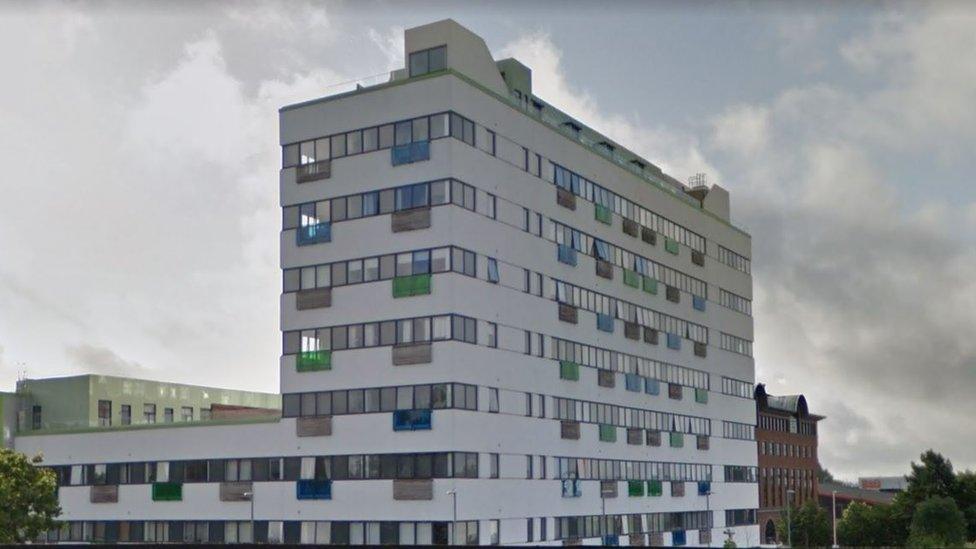'Absurd' leasehold pricing should stop, say campaigners
- Published
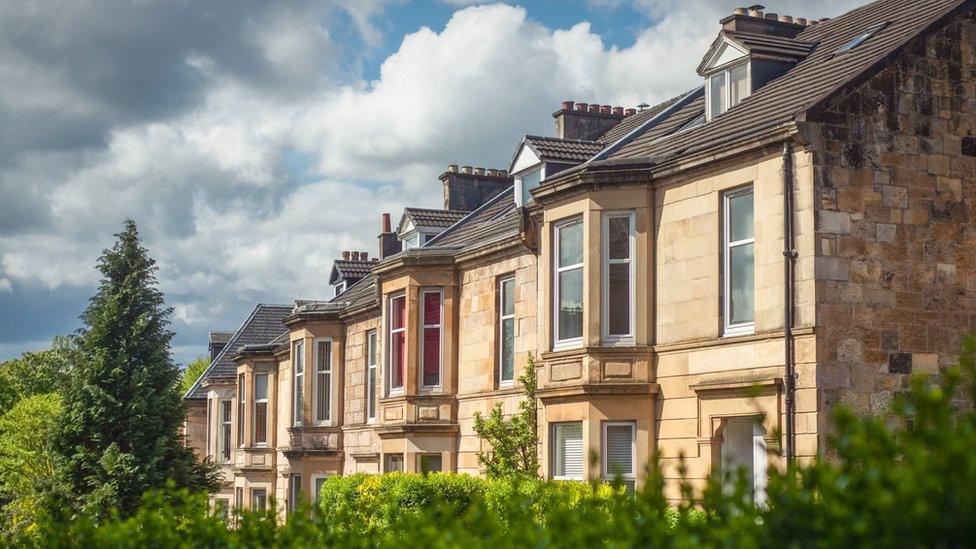
The system of pricing extensions for leasehold homes has been branded "absurd" by a campaigner.
The Law Commission this week outlined a variety of potential reforms to the system, but stopped short of suggesting leaseholds be scrapped.
Holders of shorter leases were watching out for any potential changes to so-called marriage value.
Leaseholders must pay this when extending leases of 80 years or less.
For many former council tenants who bought their homes in the 1980s, that 80-year point may be close, BBC research suggests.
Campaigners want radical action now.
Marriage value is "absurd", said Dean Buckner, a former Bank of England regulator and trustee of the Leasehold Knowledge Partnership, which campaigns for reform.
Value difference?
When a homebuyer purchases a leasehold property, they do not possess it outright. Instead they gain the right to occupy it for a set number of years. They can extend their lease, usually by 90 years, by applying to their freeholder and negotiating a fee.
The government's advisory service for leaseholders describes marriage value as the increase in the value of the property once the lease has been extended. Some of that increase is down to a lease being 90 years longer and the fact that this makes the property more attractive to potential buyers.
But any extra gain on top of that for the longer lease, or "profit" as the leasehold advisory service calls it, is then shared between the freeholder and leaseholder, and the leaseholder has to hand over the freeholder's half. Beyond 80 years, according to the law, the value is zero.
It is one of three payments a leaseholder with fewer than 80 years to go must make. The other two are a payment to cover ground rents and a payment for the extra 90 years itself.
"The idea that the value of something that I sell you can be different after I sell it is absurd," said Dr Buckner. "There can't be a difference in value"
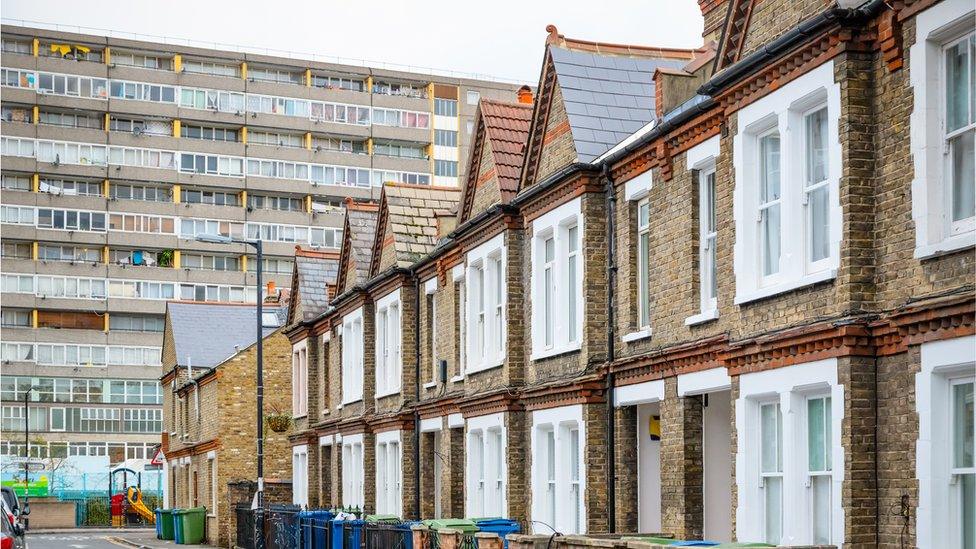
Councils in England and Wales have raised more than £27m from leasehold extensions
BBC research suggests that a large number of council flats, sold as leasehold under the Right to Buy scheme, could be approaching 80 years. Right to Buy allows council tenants to buy their homes, and some flats were sold as leasehold rather than freehold, especially in big cities.
A 125-year leasehold flat sold in 1980 at the very start of the Right to Buy scheme will have 85 years remaining.
Already, councils have extended more than 2,500 leases, raising more than £27m, according to Freedom of Information responses from 251 English and Welsh authorities.
One leaseholder in London's Lambeth district paid the council £570,000 for an extension, while a lease in Camden with 38 years left raised £209,000 for its council, and a 45-year lease in the City of London attracted a £182,000 payment. Large parts of these payments - and for shorter leases, the majority - are for marriage value.
The Law Commission in this week's report came up with three options for the government to consider. Abolish marriage value, pay a reduced fee called hope value, or leave things more or less the same. The report itself offers no preference on these.
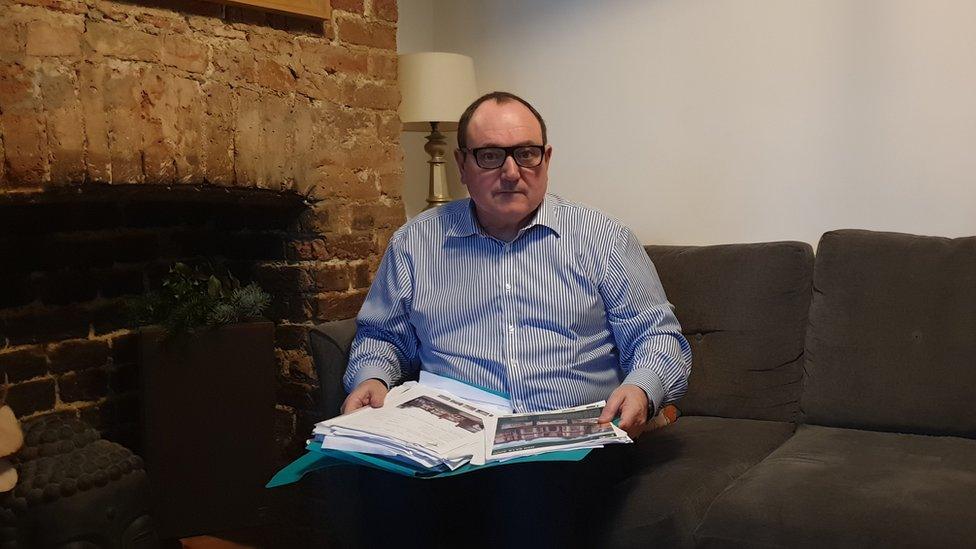
Des Kinsella is facing a request for £42,000 to extend his lease
Des Kinsella, who is facing a request for £42,000 to extend his lease, was hoping for a forthright proposal from the commission, rather than a series of very different options.
"I thought it was going to be making things fairer and cheaper for leaseholders," he said "I'm not sure."
There are reasons for leaseholders to feel optimistic, however, said Katie Cohen, a partner at Keystone Law, where her work includes leasehold extensions and freehold purchases.
Long process
"The starting point is very much reducing premiums," she says. "The extent to which the reductions will be made is entirely up to the government."
This may be a long process, however, she warned. Part of the problem is the lack of a scenario where both parties win.
"The interest of the leaseholder and freeholder are diametrically opposed," she says. "The Freeholder wants the leaseholder to pay as much as possible, being blunt, and the leaseholder wants to pay as little as possible."
Because of no set timeframe and the need for government to decide on what to do, leaseholders who have been waiting to renew and are close to the 80-year mark where marriage payments may be due may want to consider extending soon, she said.
Radical hopes
"We were hoping this would be more radical," says Louie Burns, managing director of Leasehold Solutions Group and a campaigner on behalf of leaseholders. "Marriage value particularly is artificial. There's no reason for it to exist."
He hopes the government will at least make calculating the payments easier, because currently they are based on rival valuations and negotiation.
"We have a real chance here to make this system fairer," he says.
You can hear more on BBC Radio 4's Money Box programme on Saturday at 12pm or listen again here.
- Published8 January 2020
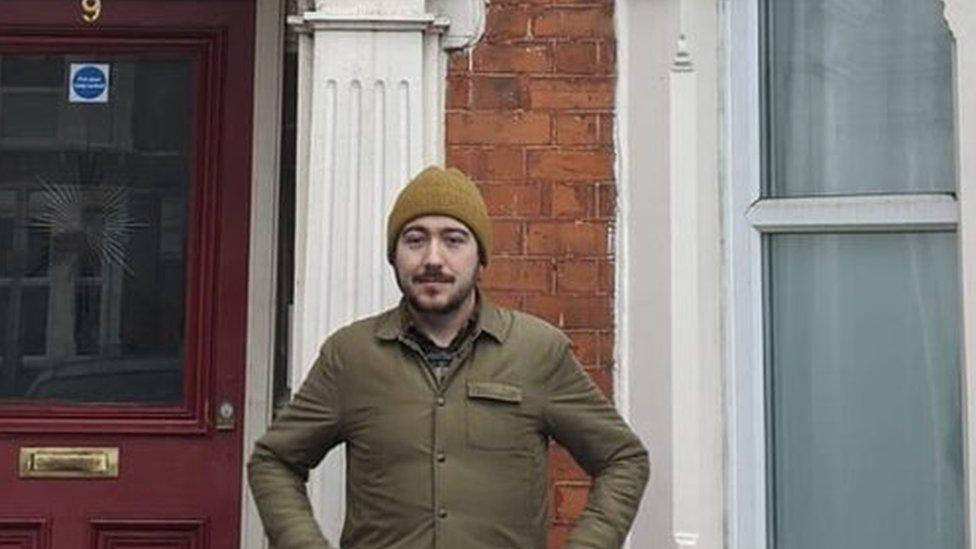
- Published7 March 2019
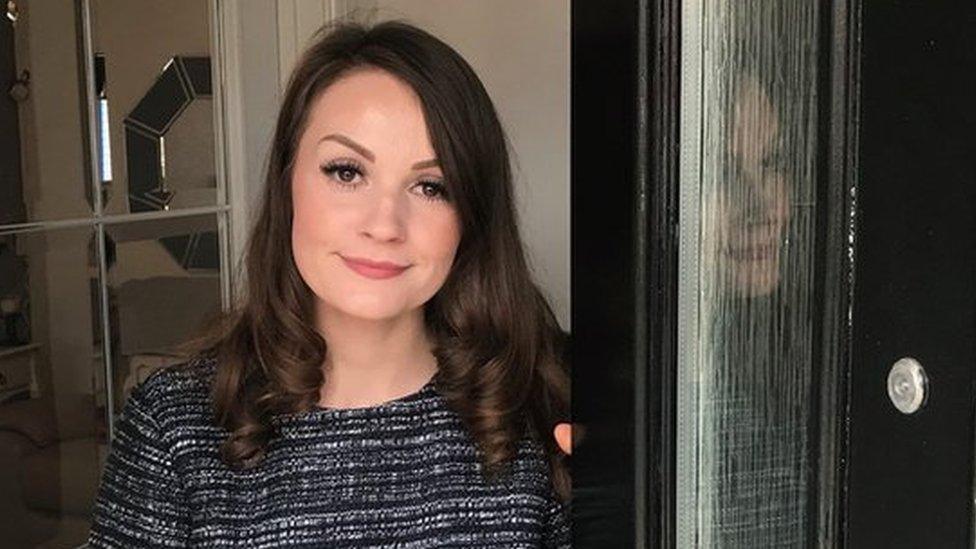
- Published28 February 2019
